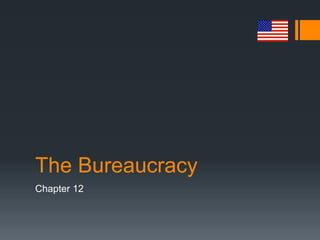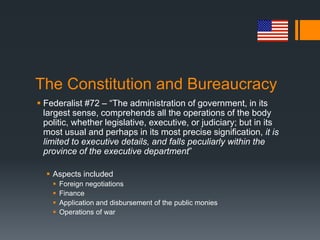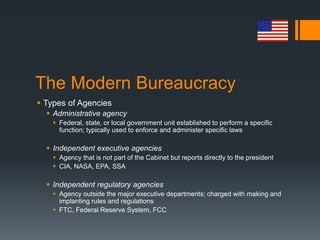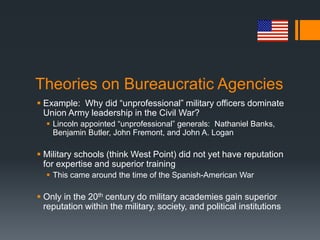The document discusses the role of bureaucracy in the U.S. government as established by the Constitution but not explicitly defined. It examines different views on whether the Framers intended for a bureaucracy and analyzes how the bureaucracy has evolved over time from the patronage system to a modern Weberian model. Theories on bureaucratic agencies are presented regarding their role in regulation and policymaking from public interest, public choice, and reputation perspectives.


![The Constitution and Bureaucracy
Informational Function of the Executive Dept.
Article 2, Section 2: “[the President] may require the Opinion in
writing, of the principle Officer in each of the executive
Departments, upon any subject relating to the Duties of their
respective Offices”
What we know
Executive Departments are established
Heads of Departments offer opinions to the president
They have duties, but they’re not defined in the Constitution](https://image.slidesharecdn.com/govt2305ch12thebureaucracy-120414004846-phpapp01/85/Govt-2305-Ch_12-3-320.jpg)













